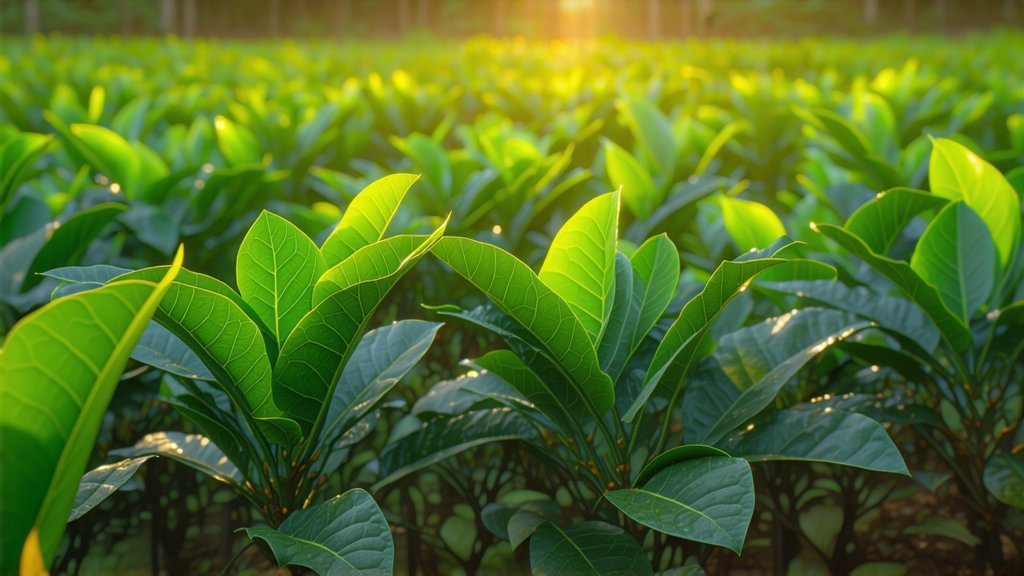
In the vast tapestry of global tea cultures, few varieties hold as much reverence and intrigue as Tieguanyin, a distinguished member of the oolong tea family hailing from the misty mountains of Anxi County in Fujian Province, China. This exquisite tea, often referred to as the "Iron Goddess of Mercy," is not merely a beverage but a cultural icon, steeped in history, tradition, and an unparalleled artistry that has captivated tea enthusiasts worldwide for centuries.
Historical Roots: A Legacy Brewed
The origins of Tieguanyin trace back to the early Qing Dynasty, around the mid-18th century. Legend has it that the tea was discovered by a poor scholar named Wang who found solace in the tranquility of a remote mountain temple. There, he encountered a tea tree with unique characteristics, which he propagated and shared with the world. Named "Tieguanyin," meaning "Iron Buddha" or "Iron Goddess of Mercy," the tea symbolizes strength, compassion, and the harmonious balance between man and nature.
Varieties and Distinctions: A Symphony of Flavors
Tieguanyin comes in various styles, each reflecting the terroir of its specific region within Anxi County. The most renowned types include Xiang Pian (Fragrant Type) and Yan Pian (Sweet Type). Xiang Pian, grown in higher altitudes, boasts a more pronounced floral fragrance, while Yan Pian, cultivated at lower elevations, offers a sweeter, more mellow taste with fruity undertones. Despite these variations, all authentic Tieguanyin shares a common thread of complexity and depth, making each cup a journey through layers of flavor and aroma.
Crafting Perfection: The Art of Tieguanyin Production
The production of Tieguanyin is an intricate process that marries traditional techniques with meticulous attention to detail. It begins with careful handpicking of only the youngest leaves and buds, ensuring optimal freshness and quality. These are then subjected to a series of steps including withering, fixation (to halt oxidation), rolling, shaping, and drying. One unique aspect of Tieguanyin processing is the repeated tossing and turning of the leaves, which helps release their natural fragrance and shape them into their distinctive twisted form.
The final product is a testament to the skill and patience of the tea masters, with each batch bearing the imprint of its maker's expertise. The resultant leaves are tightly rolled into small, dense pellets, resembling green peas, which when brewed unfurl to reveal their full potential.
The Ritual of Tasting: An Experience Beyond Taste
To truly appreciate Tieguanyin, one must engage in the ritual of Gongfu Cha, a traditional Chinese tea ceremony that emphasizes mindfulness and appreciation of every aspect of the tea experience. Begin by warming the teapot and cups with hot water to enhance the aroma. Next, measure approximately 5 grams of Tieguanyin per 100ml of water, placing the leaves into a Yixing clay pot or a Gaiwan for optimal flavor extraction.
Steep the leaves quickly in near-boiling water for about 15-30 seconds for the first infusion, gradually increasing the steeping time for subsequent brews. Observe the transformation of the dry leaves as they unfurl gracefully, releasing a mesmerizing golden liquor. Inhale deeply to capture the tea's evolving aroma before taking slow, deliberate sips, allowing the flavors to dance across your palate – a symphony of floral notes, woody undertones, and a lingering aftertaste that invites contemplation.
Each infusion reveals new dimensions of Tieguanyin's character, with up to ten or more steepings possible, showcasing the tea's remarkable longevity and depth. As you progress through the sessions, remember that Gongfu Cha is not merely about consuming a beverage; it is a meditative practice that fosters connection with oneself and others around the tea table.
Conclusion: Embracing the Iron Goddess
Tieguanyin stands as a shining example of China's rich tea heritage, embodying the philosophy that good tea transcends mere refreshment—it nourishes the soul. Its cultivation and consumption are woven into the social fabric of Anxi County, where tea is a way of life and a source of pride. For those seeking to explore the depths of Chinese tea culture, delving into the world of Tieguanyin offers an unparalleled opportunity to appreciate the artistry, history, and spirituality encapsulated in every delicate cup.
As you embark on your own journey with this extraordinary oolong, may you find not just a tea but a gateway to understanding the profound harmony between humanity and nature, echoing the timeless wisdom embodied in the name "Iron Goddess of Mercy."